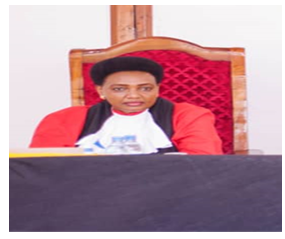By FAUSTINE KAPAMA-Judiciary
ANOTHER attempt by former Company Secretary with
Reli Asset Holding Company (RAHCO), Emanuel Massawe, to challenge the Director
of Public Prosecutions (DPP) powers to file certificate to object bail to
accused persons facing economic cases has hit snags.
This follows
the judgment of the Court of Appeal to dismiss the appeal under which RAHCO
ex-boss had lodged to oppose findings of the High Court on the matter.
“We find the appeal without merits and we dismiss it
with no order as to costs since this is a public interest case,” Justices Rehema
Mkuye, Mary Levira and Abrahaman Mwampashi declared.
This time around, Massawe, the appellant, had
appealed against the High Court, which dismissed his petition, challenging
section 36 (2) of the Economic and Organised Crime Control Act, which allows
the DPP to object bail through the certificate in question on safety and public
interests.
The High Court had ruled that such matter was
res-judicata, meaning that the same was previously determined by the same court
to its finality over the same subject matter. It said that such matter was
raised and determined in the case of Gedion Wasonga and 3 others.
When deliberating the present appeal, the Justices got a privilege to go through the decision of
the High Court in Gedion Mwasonga and 3 Others case and came to learn that the
petitioners therein petitioned for a declaration, among others, that section 36
(2) of the Act is unconstitutional.
They noted that the High Court had ruled in favour
of the Attorney General, the respondent, over such matter and were aware that
the petitioners have not appealed against that decision of the High Court which
declared the impugned provision constitutional.
“Therefore, the said decision of the High Court
stands to be the correct position of the law to date as far as the
constitutionality of section 36 (2) of the EOCCA is concerned,” the Justices
said.
They were equally aware that in the present matter,
the petitioner petitioned before the High Court for a declaration that the
provision of section 36 (2) of the Act is unconstitutional, which was
substantially and directly the same issue determined by the High Court in
Gedion Wasonga and 3 Others case.
It was their conceded view that efforts could be
made to appeal against the decision of the High Court in Gedion Wasonga and 3
others case since the appellant believes that it was improperly determined.
At any rate, according to the justices,
dissatisfaction of a party to a suit or an interested person with a decision of
the court does not justify reinstitution of the same case before the same court
of competent jurisdiction.
In the circumstances, they said, it was not proper
for appellant to reinstitute before the same court a fresh suit challenging the
same subject matter.
“The counsel for the appellant ought to have guided
their client properly and, or join their efforts to institute an appeal against
the decision of the High Court in the case of Gedion Wasonga and 3 others so as
to achieve the intended goal in the present appeal,” the Justices said.
In the previous appeal, the appellant had appealed
against the refusal by the High Court to grant him bail in an economic case he
was facing after considering the certificate filed by the DPP.
Justices Mbarouk Mbarouk, Richard Mziray and Rehema
Mkuye were of the view that, just like the High Court, once the certificate
filed by the DPP under section 36 (2) of the Act, is found to have been validly
filed, the same bars the trial court from granting bail to the accused.
“We are of the considered view that it is not the
requirement of the law for the DPP to give reasons for objecting bail where he
considers that the safety or interests of the Republic are likely to be
prejudiced,” they ruled.
According to the justices, the DPP’s certificate
could only be invalid where it is proved that he acted on bad faith or abuse of
the court process, smoothing which was not established and proved before the
High Court.
Facts of the case indicated that the appellant and
two others were charged at the Kisutu Resident Magistrate’s Court in Dar es
Salaam with offences ranging from conspiracy to commit crime, abuse of position
and occasioning loss to a specified authority, under the Economic Act.
The prosecution had alleged that the appellant and
his co-accused persons , on diverse dates between March 1 and September 30,
2017, at RAHCO offices, by their willful acts, procured consultancy services
from Rothschild (South Africa) Proprietary Limited.
It was alleged that such process was done without
adhering to the procurement procedure and made payment to the said company for
consultancy services, which was not rendered, thereby causing RAHCO to suffer a
pecuniary loss of 527,540 US dollars, which was paid as advance.






Hakuna maoni:
Chapisha Maoni